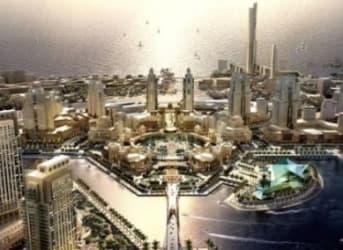The Saudi government hopes new special economic zones can spur foreign investment and lessen the Kingdom’s reliance on oil. Regulatory reforms are needed, however, to convince foreign firms that Saudi Arabia has more to offer than just cheap energy.
Just off the coast of the Red Sea, about 60 miles north of Jeddah, a massive construction project diverts the eye from an otherwise barren Saudi Arabian landscape. Shiny, modern towers glimmer under the Gulf sun, casting a brief shadow over the empty shipping port and arched gates that boast large billboards of King Abdullah.
The project, known as King Abdullah Economic City (KAEC), named after the late king, is one of five planned special economic zones that Saudi Arabia hopes will bring diversity to the Kingdom’s industrial landscape. Scattered along the Red Sea and throughout the Saudi Arabian heartland, each economic city will focus investment in a different industry intended to wean the country off its most precious resource: oil.
With oil prices plummeting amid Saudi Arabia’s battle for market share, new industries and economic offerings will help to define the country’s global relevance in the coming decades. Diversity will also provide jobs and opportunities for the 13 million Saudis – about half the population – that are under 25 years old. Attracting global businesses to young cities in the Gulf, however, will require strategic investments and reforms that liberalize the Saudi Arabian operating landscape. Related: OPEC Chief Claims Oil Will Rebound Higher Than In 2008
The Saudi government envisions the cities, KAEC in particular, as islands of relative liberalism. New economic guidelines would allow for foreign ownership of private companies, accompanied by a streamlined bureaucracy that will reduce turnaround on simple transactions, like visas and customs documents. Relaxed social rules will enhance women’s rights in the cities, cultivating an ambiguous mix of Western and Saudi styles.
By isolating economic and social reform to these special economic zones, the government hopes to create controlled “islands of change” that will seep liberal ideas out of the rest of the country. Jazan Economic City, near the border with Yemen, will serve as a manufacturing and raw materials hub on the Red Sea. Knowledge Economic City, outside the Islamic holy city of Medina, will focus on “knowledge-based” industries like biotechnology and higher education.
Should the economic cities achieve their intended effect, the Organization for Economic Co-operation and Development (OECD) forecasts $150 billion in new economic activity in 2020, a 50 percent increase in Saudi GDP.
Challenges remain, however, that could limit the sustainable growth and success of Saudi’s drive for economic diversity.
“Islands of change”
While some business regulations stand to be reformed within the economic cities, others are less likely to change. The Saudi government currently sets quotas for foreign firms to hire locals, who often require more training and are more expensive than foreign workers.
According to the UNCTAD, there are few Saudi locals qualified or willing to work in the government’s target industries. For many small firms, the financial burden of training and recruitment greatly limits the attractiveness of Saudi’s business landscape.
Foreign firms also point to the unpredictability of the SAGIA, the agency responsible for spurring foreign investment in the Saudi economy. The agency recently created plans to rank firms based on their compliance with local rules and objectives, offering cheaper energy and favors to those near the top of the list. While these rankings may have been intended to provide foreign firms with insight into business compliance, in reality they create a formal avenue by which the Saudi government can bestow favors upon the well-connected. Related: Oil Prices Changing The Face Of Global Geopolitics
Such regulations and rankings will likely push foreign companies into other regional markets, like the UAE and Qatar, who offer established cities with a more liberalized regulatory framework. Dubai and Abu Dhabi’s emergence as global aviation hubs have made them attractive locations for manufacturing, banking and investment. Other regional cities offer a less socially-conservative business environment, making them an attractive alternative to the yet unproven Saudi “islands of change.”
The most high-profile of the economic cities – KAEC – hopes to take advantage of the 25 percent of global trade that passes through the Red Sea. The new seaport intends to turn the surrounding area into a hub for global trade, and a center for industry and investment.
So many of Saudi Arabia’s plans, however, still rely on access to cheap energy. The minerals, plastics and manufacturing industries that will drive growth in the new economic cities depend on cheap oil for long-term success. The government will likely continue to subsidize energy costs for foreign and domestic firms as well, which will become difficult to maintain as global oil prices continue to slide.
This begs the question: can “economic cities” really bring diversity to Saudi Arabia? Or will they simply highlight the Kingdom’s reliance on cheap energy as incentive for foreign investment?
By Rami Ayyub
Source - http://globalriskinsights.com/
More Top Reads From Oilprice.com:
- What King Abdullah’s Passing Means For The Oil Markets
- Oil Crash Needs A Villain But The Story Is More Complex Than That
- Did Saudi Arabia Just Flinch?


















